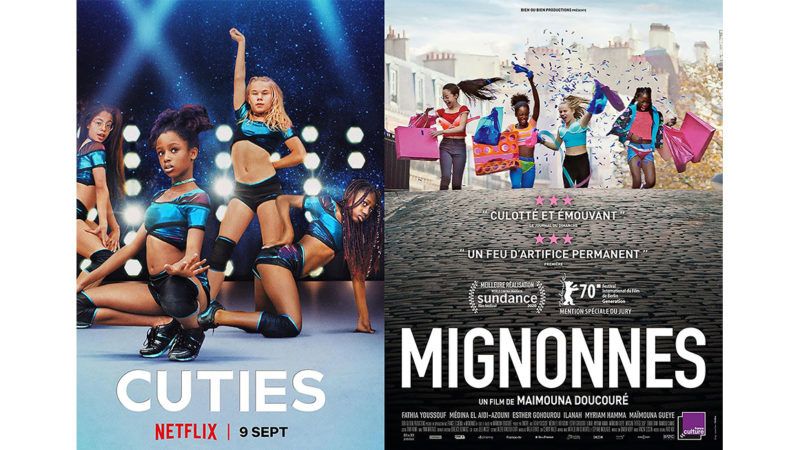Cuties
The film's critics complained that it endorsed the sexualization of children. They're wrong.

Cuties, an award-winning French film available on Netflix, portrays 11-year-old girls who practice and perform raunchy routines for a dance competition. Critics of the movie, many of whom admitted they had not seen it, argued that it was illegal and complained that it endorsed the sexualization of children. They were wrong on both counts.
Sen. Ted Cruz (R–Texas) urged the Justice Department to "investigate the production of 'Cuties' and Netflix's distribution of the film" to determine whether either violated the federal ban on child pornography. But no investigation was necessary, since Cuties clearly does not fit the legal definition of child pornography: a "visual depiction" of "sexually explicit conduct" involving minors.
That definition includes "simulated sexual intercourse." But as Supreme Court Justice Antonin Scalia explained in a 2008 case, the phrase applies only to depictions that would "cause a reasonable viewer to believe that the actors actually engaged in that conduct on camera." Nothing in Cuties fits that description.
Furthermore (spoiler alert), the film is consistent with director Maïmouna Doucouré's avowed intent and with Netflix's description of Cuties as "a social commentary against the sexualization of young children." The audience at the dance competition is visibly and audibly appalled by the tween twerking. The protagonist, Amy, tearfully realizes that she is trying to grow up too fast and has been too quick to reject the culture and values of her family, Muslim immigrants from Senegal. She runs home, hugs her mother, and changes out of her skimpy outfit.
The last image in the film is Amy joyfully jumping rope with kids in her neighborhood. It is an unmistakable sign that she has decided to remain a child a while longer rather than mimicking the risqué behavior of the adult performers she sees on social media.
